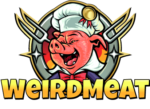Eating Whelks is a great way to get some of the essential nutrients your body needs. They are a good source of protein, iron, potassium, copper, Vitamin B12, and omega-3.
Whelks are large sea snails in the family Buccinidae that are eaten throughout Europe and Asia. Some of them can be up to 12cm long and have ribbed shells that look like a snail.
Overview of Whelks as a Food Source
Whelks are large marine snails that are scavengers and predators of shellfish that live in benthic, shallow nearshore environments. They have a coiled spiral shell with a muscular foot that protrudes from their opercular opening.
They eat a variety of prey species including crustaceans, mollusks, and worms. They drill holes into their prey using a radula, then insert their proboscis into the hole.
As a food source, whelks are a good source of protein, iron, potassium, copper, vitamin B12, and E. They also contain Omega-3, a fatty acid that improves heart health and helps maintain cholesterol levels.
Whelks are commonly caught as by-catch in lobster fishing. They are also sold as ornamentals and pickled meats in the cottage industry. They are a popular food item in many European and Asian markets.
Culinary Uses and Traditional Dishes
Whelks can be used in a variety of dishes. They are commonly used in soups and chowders, as well as being boiled and served with a lemon or butter dipping sauce.
They can also be eaten as an hors d’oeuvre. Whelks are typically rinsed several times in water to remove dirt and are then steamed.
A favorite dish in Italian-American eateries along the East Coast is a chewy channeled whelk, which is often sliced and sprinkled over a bed of linguine.
Whelks are not only an affordable seafood alternative, they are high in protein and contain a variety of vitamins and minerals. They are also a good source of Omega-3 fatty acids, which help to maintain heart health and repair damaged cells.
Availability and Market Trends
Whales are large, aquatic mammals that can reach up to 30 metres in length and weigh as much as 200 metric tons. They need to consume a large amount of food to keep their energy levels high for swimming, reproduction, caring for young, and evading predators.
They do this through their feeding strategy which consists of hundreds of plates called baleen that they use to filter through thousands of gallons of seawater laden with prey. This enables them to efficiently eat up large quantities of food in one sitting.
They are also a popular destination for tourists who enjoy watching these marine mammals. The whale-watching industry is a billion dollar business in many countries.
Health Benefits and Concerns
Hemp seeds are a good source of protein, omega-3 fatty acids and other essential vitamins and minerals. They’re also high in fiber, which promotes heart health and digestion.
Hemseeds are also rich in arginine and linoleic acid, which help reduce inflammation, including C-reactive protein (CRP), an indicator of cardiovascular disease. Arginine also improves circulation and linoleic acid may lower triglycerides and cholesterol levels in some people.
Hemp is also known for its immune-boosting properties. It’s thought to increase the amount of white blood cells in the body and boost your immune system by strengthening your natural defenses against bacteria and viruses.
Sustainability Issues
As with many animals, whales play a critical role in maintaining the health of the ocean ecosystem. They help regulate the food chain and ensure that no one species – predator or otherwise – dominates the waters.
They also release carbon into the atmosphere, helping mitigate climate change. North Atlantic right whales, for example, can store 33 tons of carbon dioxide in their bodies.
This means that restoring whale populations to pre-whaling levels would not only benefit whales, but the entire planet as well. A study shows that if this happened, it could remove 160,000 tons of carbon from the atmosphere each year.
